

SISTER TIME
LITERARY MAGAZINE
BY WOMEN FOR WOMEN
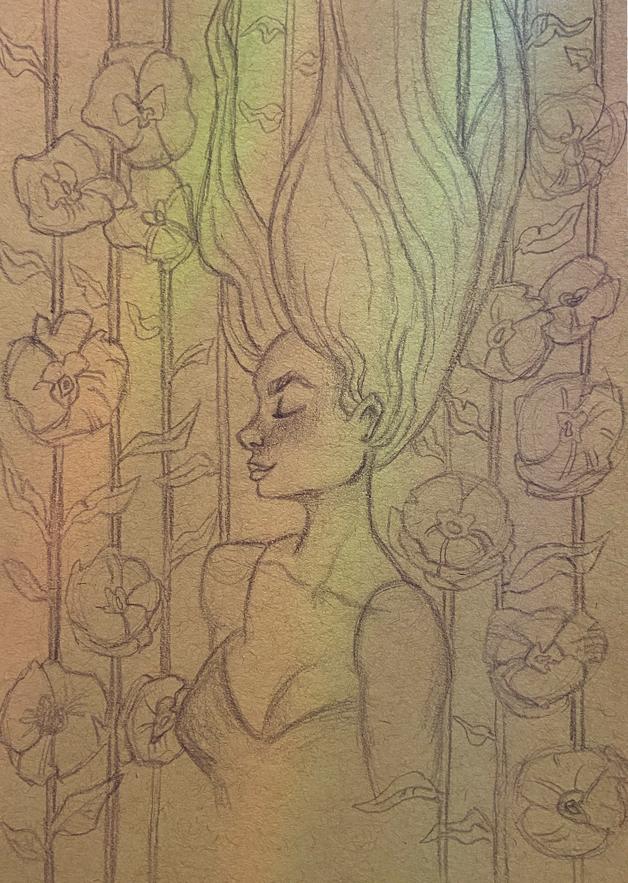
Mission
Sister Time is an online literary magazine for women and by women. Here, we believe that every girl –young and old– could always use a little time hearing and learning from other powerful women in the world around them. Edited and run by women, we publish seasonally and are open for submissions year-round. In an effort to spread female voices and empower women during any stage of life, we encourage women from all backgrounds to submit.
Staff
Creator/Managing Director
Kat Ziwot is a New Jersey-based writer who hopes she can inspire those who have been silenced to be heard through her writing. She credits her two older sisters as her motivators for creating “Sister Time”, as their positive impact on her life has helped her become the person she is today. Recently, Kat published her first novel (“The Sword of Numin”) and looks forward to completing her senior year of high school this spring. When she isn’t writing, she is likely buried in a spicy, romance book, belting (off-key) show tunes, or doing the daily crossword puzzle.
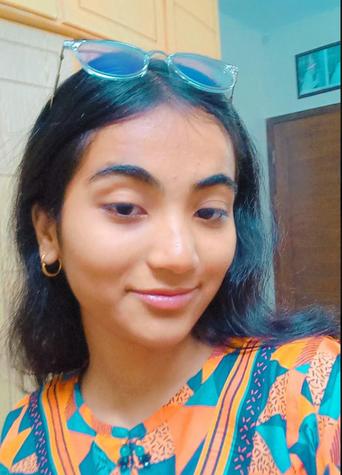

Editor
Sakina Hussain is just an average teenager navigating her junior year of high school. She enjoys throwball and participates in various extracurricular activities. Although she can be a bit of a control freak and a perfectionist, which might make her seem intimidating at times, she’s actually a lot of fun to be around.
Editor
Mia Soto (M.S. Blues) has been published over 170 times in digital and print formats. Eber & Wein, Wingless Dreamer, miniMAG, Moonbow Magazine, and Millennial Pulp Literary Magazine platformed some of her most noteworthy publications. In addition, she serves on 20 different staff boards, with the objective of helping the creative writing community flourish. She firmly believes that if we all pull our weight, we can help make the world a more beautiful, creative place.
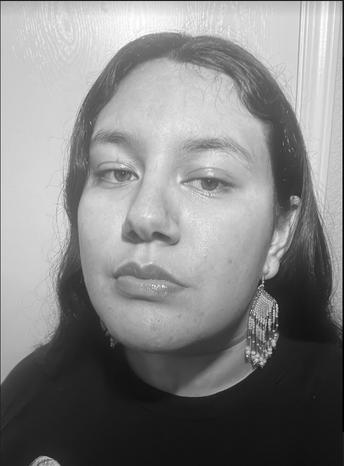
Editor
Amy Lee is a young writer in highschool with a passion for exploring complex themes through her poetry and prose Her works often focus on environmental issues and loss. Amy draws inspiration from her experiences growing up in several cities where she has witnessed firsthand the impact of climate change and urbanization on the natural world. Her writing has been recognized by publications such as Eunoia Review, and Uppagus, āraśi the reflector, etc.
Editor
Neha Usmani is a keen admirer and lover of all things literary. She is also enthusiastic about music, late nights, mythology, photography, and her never-ending stream of new interests.
Artwork
Abigail Gill
Cover Art, 7
Jess Sherman
Page 11, 20
Alex Burrows
Page 13, 16
“Finding Hope” by M.S. Blues
We’ve lost ourselves beyond. But there’s still time to find hope. I have hope our world will improve. That one day, we are equal, regardless of our differences. That one day, there aren’t people without a roof to sleep under.
That one day, guns don’t have more rights than a human being. That one day, hate will dissolve and love will win.
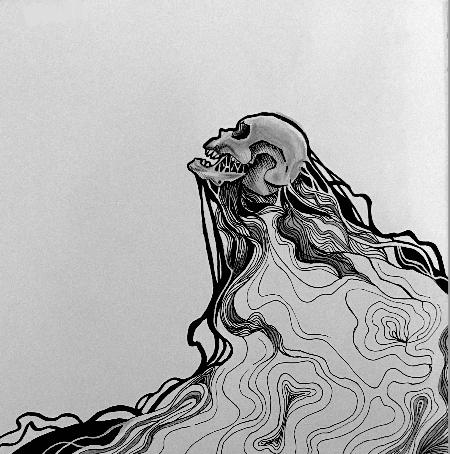
“Women in Literature” by Arunima Juneja
The expression of pain, ecstasy and emotion
Through the words of a woman
Casts a spell like a beautiful symphony
And the word’s echoes remain through the long tunnels of history
Sappho, from before The Christ era
In the small island of lesbos in Greece
Had poems reflecting the fantasies of romanticism
Her lyrical and picturesque writing
Challenging the roots of classicism
And Phillis Wheatley, a slave, bought and sold
Paved her way to freedom
By being the first African-American to be published
And admired by the most prominent figures of wisdom
With the 1800s came, Jane Austen
Pureness of words and reality descriptions
Offering solace and escape to those in need
With her dramatic element and page-turning read
Emily Dickinson, with her creative originality
Became the “poet of paradox” and had a profound influence on poetry
Another Emily, one of the Bronte sisters
Was Famous for her work about loss, revenge and glory
The famous and renowned author, Agatha Christie
Known for her page turning books
The perfect element of drama and mystery
The plots and characters, last long in reader’s memory
And how could we forget, Sarojini Naidu
An activist and poet, both alike
Her works patriotic and beautiful
Impacting a thousand lives
Sylvia Plath, known for her confessional works
Expressing her struggles, her miseries
Through alliteration, lineation and sound
And resonating with readers all around
The ‘people’s poet’, Mary Angelou a civil rights activist known as a ’ black women poet laureate’
Using words, bold and true
To cause ripples in the discriminative and racist society
J.K Rowling, with her creative magic
With her descriptive writing and fantasies
Teaching children, values with her hidden meanings Hooking them into a world of endless possibilities.
Last but not least, Arundhati Roy, activist, Winner of the booker prize
For her opinionated statements and truths
For showing where her heart and soul lies
Women in literature
Making their impact in the world
Expressing their thoughts and perspectives on paper
Carving the way for a better future
Offering an escape from reality
Using their potential to the full capacity
Speaking for all the quiet females out there
Not ranting or whining
But trying to correct the unfair
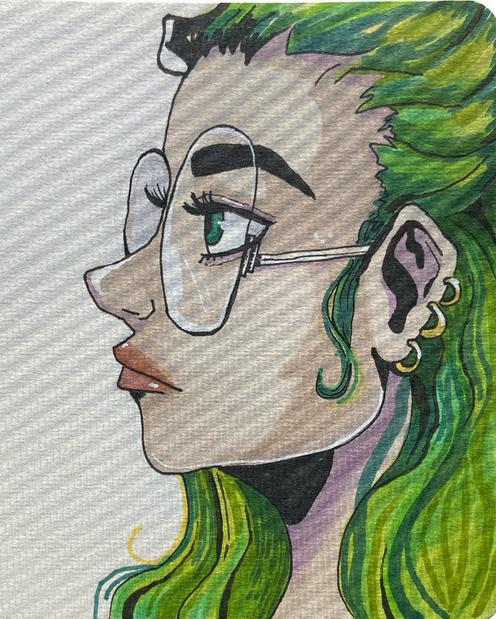
“Starts With a Small Crack” by Arunima Juneja
Starts with a small crack
Like a scar on the forehead
Spreading across like wildfire
Till your very being Is covered
With webs
Strings break and Your form is just a layer
Of little jagged pieces of dust
Floating in the air Until
The powerful hand catches
Those flecks of unimportance
Moulds and stretches your soul
Till it’s like it’s very own
That sensuous mouth breathes
Its predictions of the future
Its beliefs of the past
On that newly formed sculpture
That silky voice whispers
The desires of its heart
The music of its sins
To that fresh work of art
Those knowing eyes that convey
All that they’ve seen
Their theories, their views
To your new being
All the songs, the sights
The beliefs and views
Bring that reformed piece of art
To life
Till it’s an echo
Of someone else’s music
The soul; an actor
In someone else’s play
Just a replica
Fake in the clear bright day
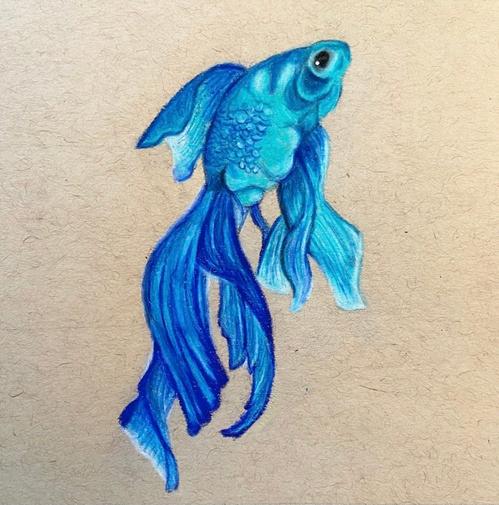
“Let Go” by Arunima Juneja
Branches entangled
Hold no leaves
No leaves
Except for a lone one
The last lush leaf
Connected to the tree
By the thread of a stem
Which dances and wavers
To the wind’s rhythm
Which arches its back
With the arrival of each droplet
Till the leaf’s surface
Faces the sun
And the rays press on it
And the humid air
Is a hand around its throat
And then it’s
Caressing its green hide
Begging it to let go
To let the wind
Guide it Towards A Place
Far Away
Where it is no longer Alone
“The
Girls We Used to Be” by Soph
Where are the little girls we used to be?
The adventurous girls who were never shy, never cried. Now we spend our days isolated because we hardly talk to others, We spend our nights crying, Crying over things we never thought could happen. This glorified idea of girlhood is a cover. A cover for what we go through, what we experience. We were promised a calm boat journey to becoming a woman but instead we end up on a small boat in seas that change without reason, At peace for a minute, but deadly the next, and we cannot change that, We praise all women we see because we know they must have been through hell to simply survive, We are praised by women as they know they must have been through hell to simply survive. The girls we used to be are stuffed into the back of our closets, under our beds, we hide her away, we want to protect her from the storm.
But we stay strong, we protect that girl because she doesn’t deserve to experience anything that we do.
But although she’s hidden, that girl still feels and sees everything, And every time we feel joy, so does she, she slowly heals.
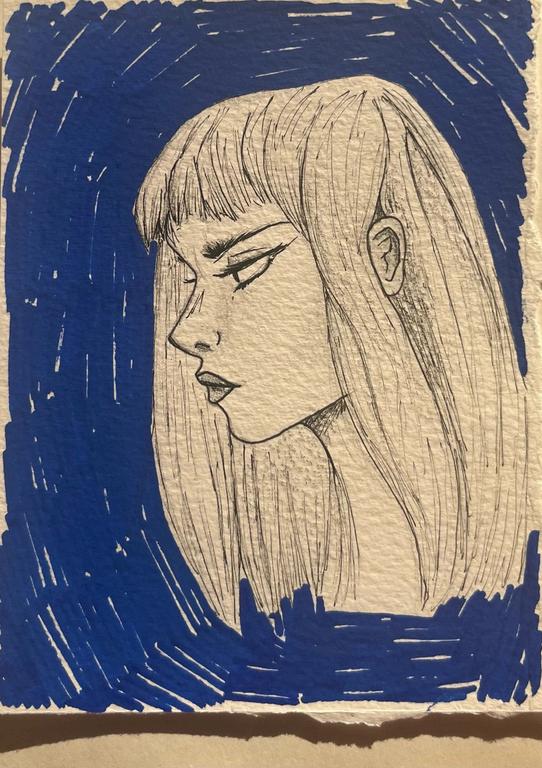
“My Pink Bike” by Soph
If I look for too long I don’t feel real, My pink bike that keeps me going has lost its training wheels. I decorate it with flowers and a small yellow basket,
To try to save my childhood that’s lying in a blade-shaped casket. Now my bike looks pretty, but I’m unsure how to balance, I don’t want to fall –
If I got hurt I’d have no one to call,
My cry for help would never be spoken.
Like sylvia my internal fears shall soon be awoken.
Now I’m facing the adult world,
My pink bike is gone, Heartbroken.
“I
Had a Dream” by Sue Bruno
I had a dream some time ago
That woke me with a scare.
The chilly wind began to blow
The earth below was bare
I wandered aimlessly through the land
Extending far and wide
The rolling grass had turned to sand
The plants and trees had dried.
I smelled no flowers in the air
Their scent was long gone by
The sky above, it made me stare,
And now I realize why
Deceit, destruction, death, despair
They used their powers well
The world I knew of wonders rare
Had flourished, fought, and fell
“A Woman’s Wardrobe” by Kat Marie
A woman ’ s wardrobe needs to have a few shirts. One that shows just enough without revealing anything at all, one that’s loose but not baggy, and one that’s tight but not too small.
A man ’ s wardrobe Needs a few shirts, too. A few might be colored, a few might have stripes, a few might have sleeves depending on the type.
A woman ’ s wardrobe needs some pants. Some that flow and some that squeeze. And she needs some skirts, mini ones to show her legs but never show her knees. .
A man ’ s wardrobe needs some pants, too. Though it’s less likely for a passerby to notice the cut or objectify the size of their butt.
A woman ’ s wardrobe must follow a set of rules.
A woman ’ s wardrobe must define who she is.
A woman ’ s wardrobe reveals her worth.
A man ’ s reveals his clothing.
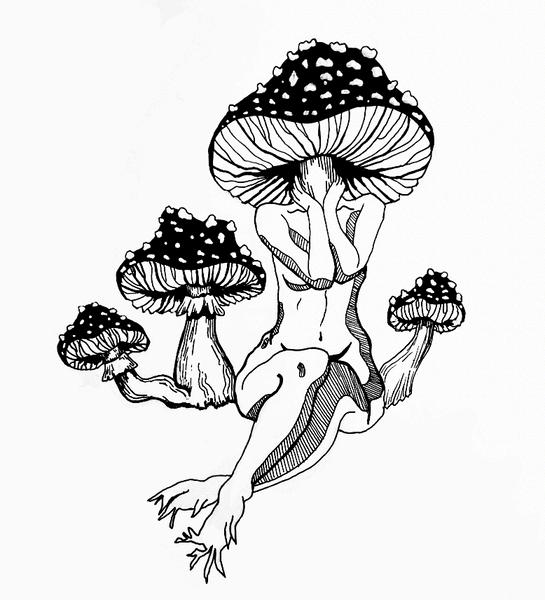
“Lullaby” by Amy Lee
Minutes before midnight, when the last lights in the neighborhood insist on dimming, the mother walks down the dirt path that leads, like every other street here, to the wishing well, the one each house overlooked, including theirs. Through the shadowed window opening outward towards the community jangmadang, vendors call at housewives as they throw out bunches of green grapes and gam. Over her shoulders, the mother can hear the chattering of the milling crowd, and the well’s wooden spindle creaking as the wind whistles past. This is what keeps the people in peace – at least for as long as the town's money holds out.
Each night the echoes of water have lulled them to sleep. When they wake, not even a small hesitation is allowed before several heads of people wait to collect a bottle of water, wishing for the spirits of the well to hear their wishes. The sun pours over the woman ' s face and arms.
Standing against so many people, she thinks as if the falling water has brought her in the presence of new dawn lights.
“Shhh,” the others shush the mother, glancing at her as if telling her to move away as they pray for themselves.
As the woman walks away, she finds herself standing, sauntering down the middle of an alley where she has no reason to be, a place she has come from a simple coincidence, a fortune she had hoped for minutes ago, where no one is hurt, but reunited. At the sight of a young boy sitting against a neighborhood house, the woman steadies herself against the stone wall. With her left hand grasping at the stone, she lets out an excited giggle.
“Junhwan...” the mother whispers.
The young boy does not respond, as if it’s only his apparition the mother can see, and the two sit together in silence. Above the cratered Dol-hareubangs, the moon is blank in the sky. No stars. Minutes later, when the last street light blinks out behind them, they can tell they’ve stayed out too long, and the mother returns to find herself wandering the outskirts of her town, alone.
In this entire village, only a single streetlight beside the fountain burns. From the yellow glare, the well looks fissured with cracks. Its brick walls are crumbling, softened by the algae growing in between. During the day, the village chief patches the cracks and brushes down each village path, but every night like a recurring dream, late noon after the mother has visited her son, dark cracks reappear and through small gaps, the water puddles each stone so that it seems like a rainstorm has just swept the square. Tonight, after the trickling water has soothed everyone to sleep, the mother takes her sandals off, sweeps strands of hair (that had turned gray over the years) off her face, and bends down against the brick walls of the well, praying for another opportunity — a succession of fortunes for her and her son. At that moment, a young passersby reminds the woman of her family. Opposite the well, alone in the center of this neighborhood, the mother glares up at the starry sky, hoping for the spirits to hear her voice.
